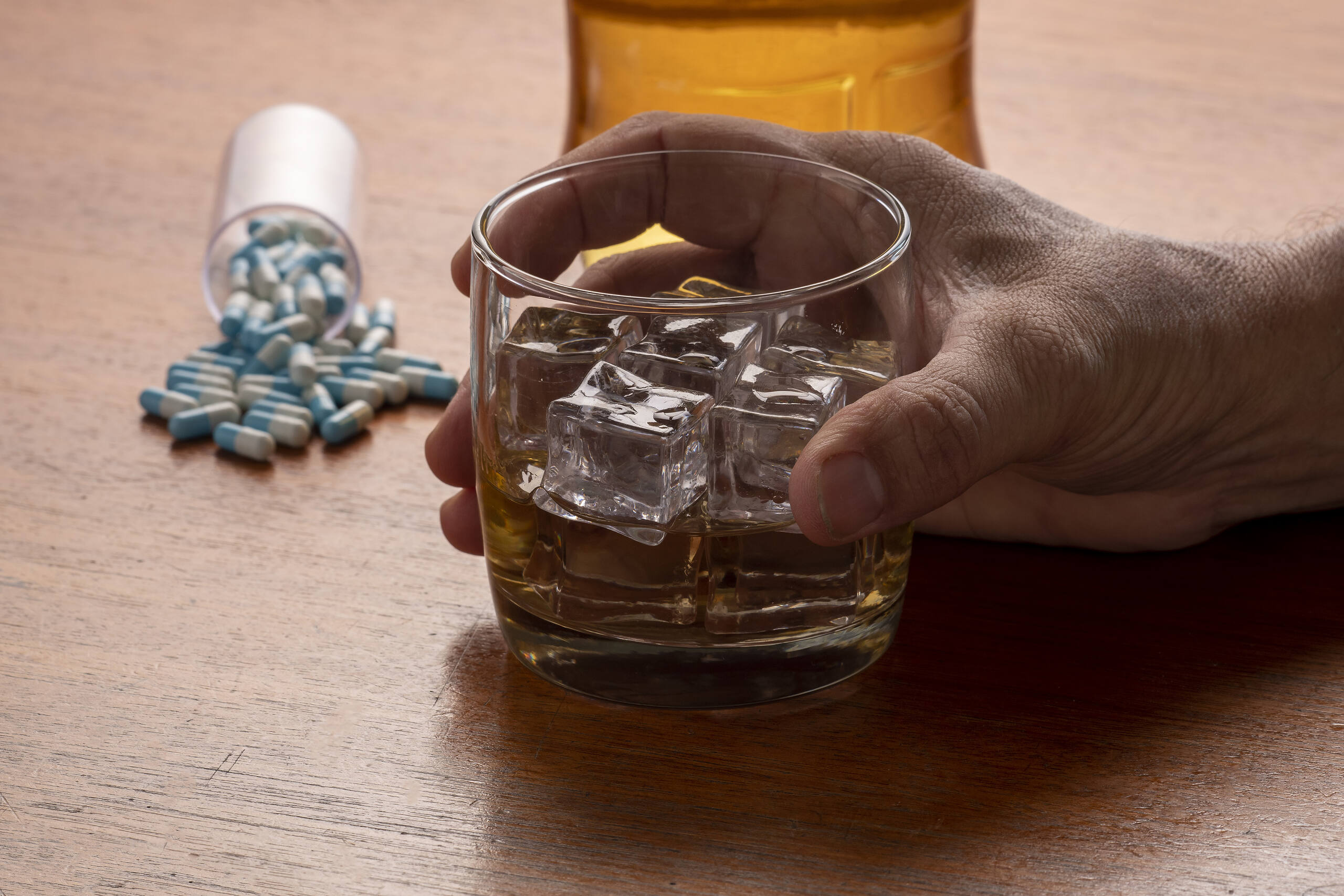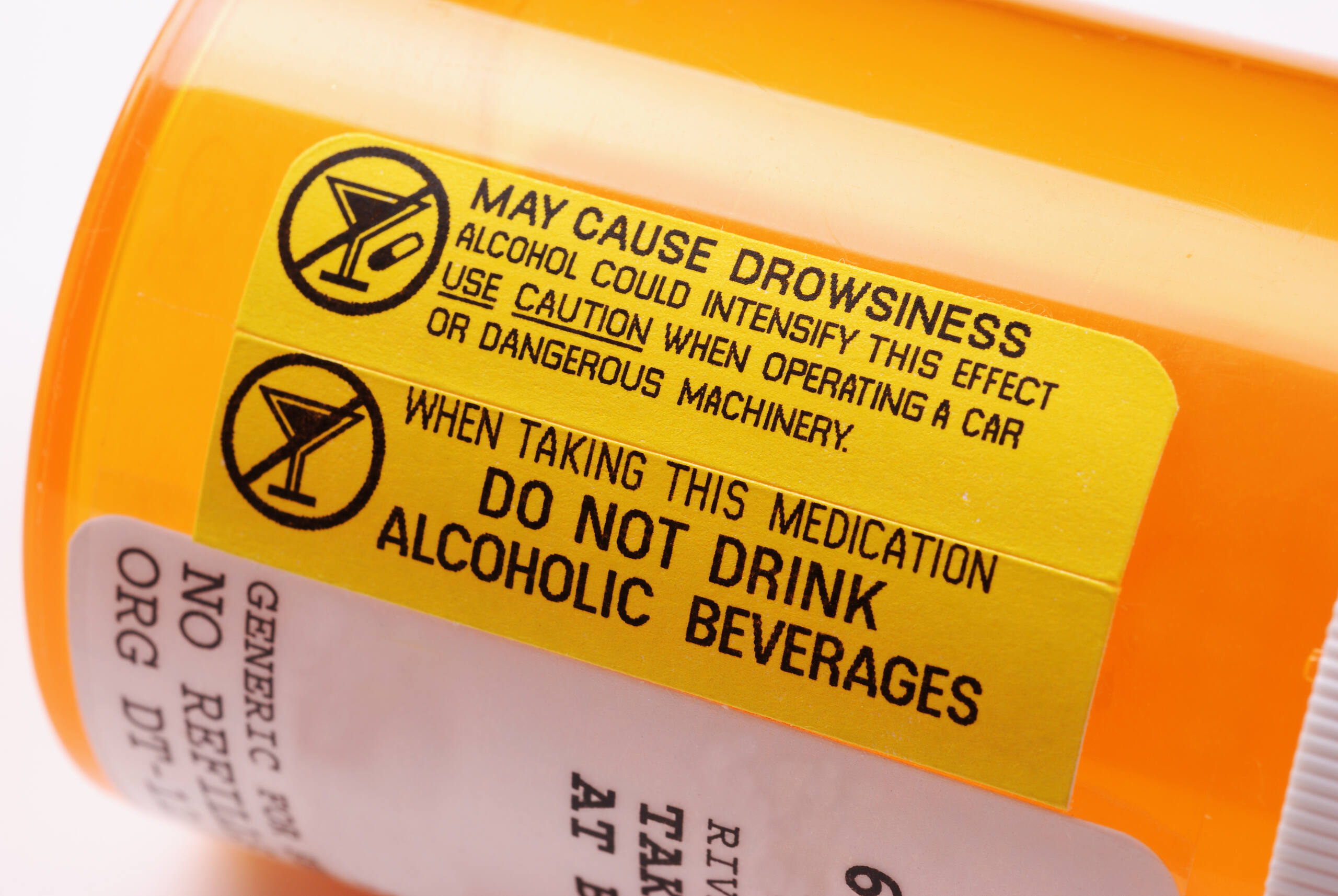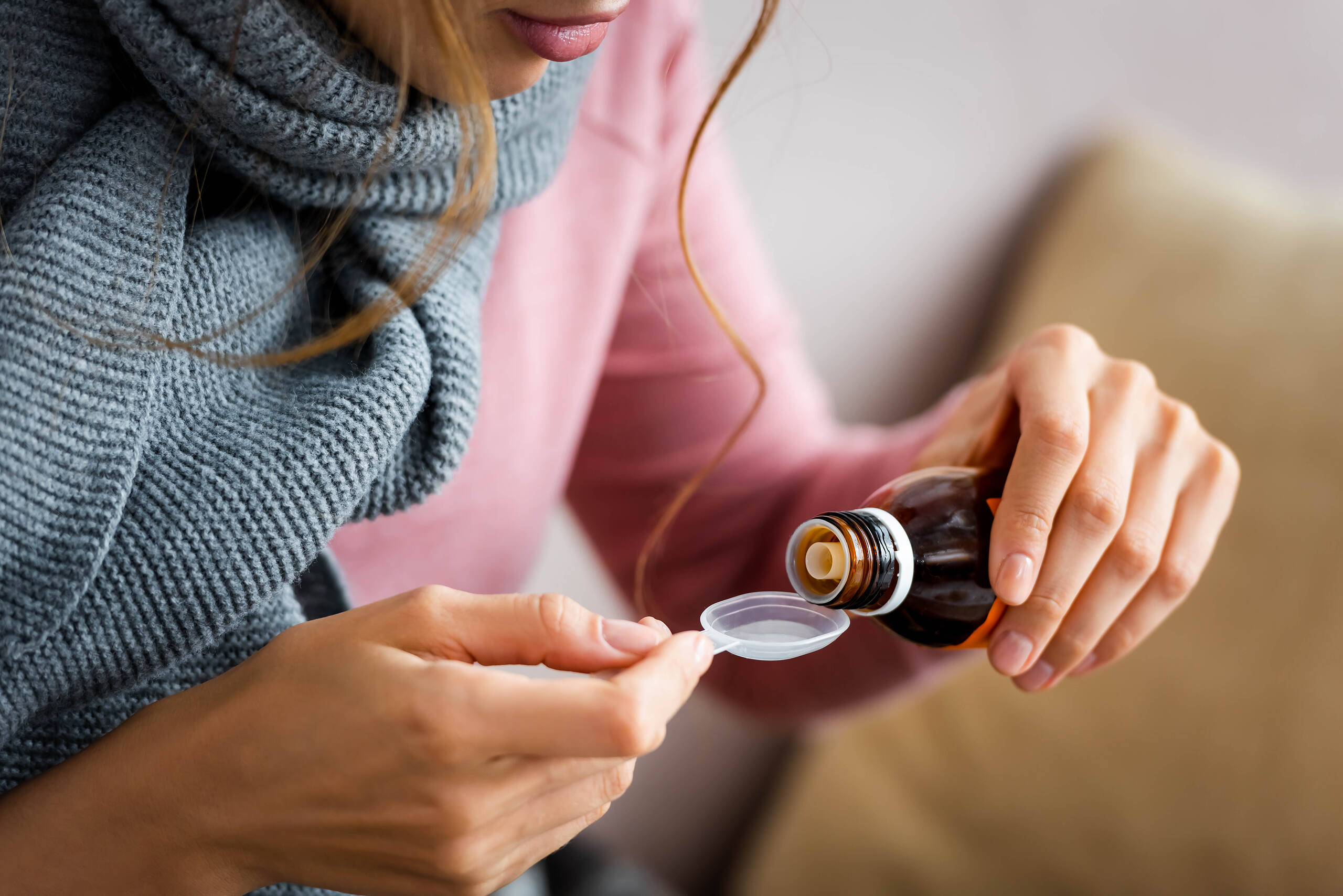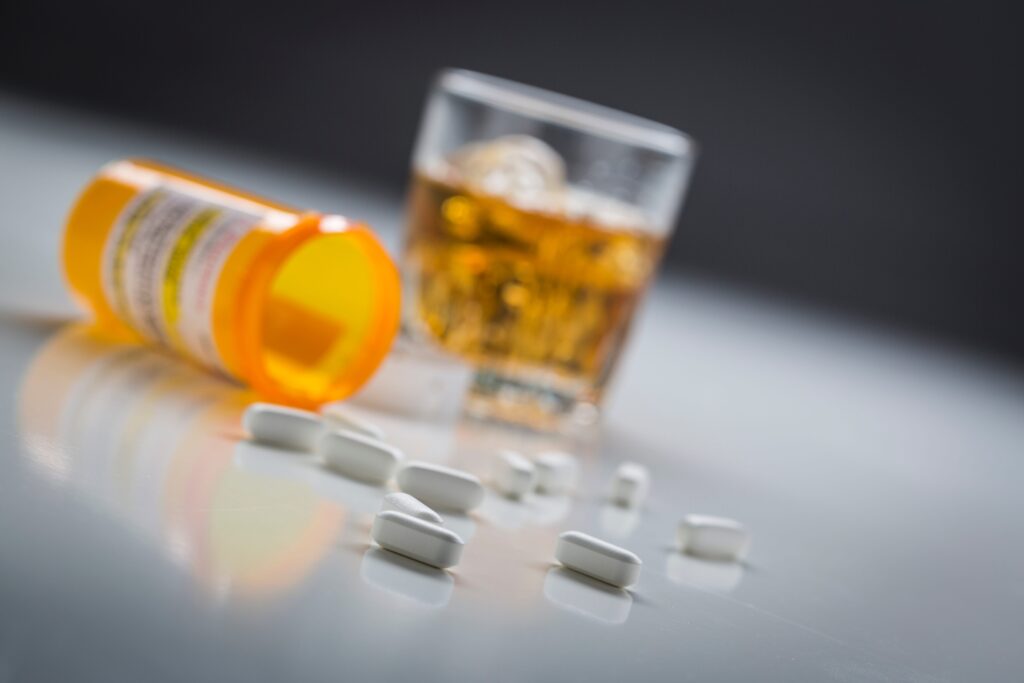Most people think that mixing alcohol and antibiotics will stop the antibiotics from working.
While avoiding alcohol when taking a course of anti-bacterial medication is a good idea, in most cases, alcohol won’t reduce its effectiveness.
Many antibiotics will have a warning label on them advising patients to “Avoid alcohol”, but does this mean all alcohol or only excessive amounts? Also, why is this recommended?
If you are reading this, you may be wondering if a bit of alcohol is okay or if any alcohol will cause unwanted side effects and stop the antibiotics from doing their job.
When your body is healing from an infection, self-care is paramount. Antibiotics are very effective in treating infections, but drinking alcohol with them can be detrimental. Here, we will explain why.

Does alcohol stop an antibiotic from working?
Moderate drinking of alcohol does not tend to affect how well an antibiotic works in fighting an infection.
However, alcohol, when drunk to excess, does have an impact on the following:
- The immune response
- Overall well-being.
- The absorption of drugs into your bloodstream.
This could potentially lower the antibiotics’ effectiveness in fighting infection.
Alcohol and antibiotic metabolism
Some antibiotics are metabolised by the same enzymes in the liver that are responsible for breaking down and metabolising alcohol. Changes to these enzymes’ efficiency can occur when alcohol is consumed to excess.
For example:
- The liver can only metabolise one alcoholic unit per hour.
- This timeframe can be increased when the liver is working to process other drugs or medications simultaneously.
- The liver works less efficiently under pressure, i.e. when a large quantity of alcohol is consumed within a short space of time.
- Liver enzyme efficiency is also compromised when a person drinks alcohol every day.
Drinking alcohol every day can cause an antibiotic drug to be broken down more rapidly due to induced enzyme levels in the liver. Because of this, there is a decrease in antibiotic levels in the blood, meaning a person’s infection may not be cured. They will also be at an increased risk of suffering from antibiotic resistance.
If you are a chronic drinker or drug taker, check with your doctor if the antibiotic prescribed has any interaction with your liver enzymes. Your doctor can then consider a more appropriate alternative if needed.
Alcohol and the body’s immune system
Moderate alcohol use does not usually stop an antibiotic from working. However, it can impact the efficiency of your immune system to fight a bacterial infection.
Large amounts of alcohol have been shown to directly suppress a wide range of immune responses in the body. Additionally, alcohol abuse has been shown to increase the risk of developing infectious diseases through lowered immunity.
Whilst science has proven that excessive alcohol consumption harms the body’s immune system, there is still not enough known about the body’s immune response in the case of moderate alcohol consumption.
Antibiotics side effects
Antibiotics, in general, can cause some unwanted side effects. Alcohol can make these side effects more severe; let’s look at why.
Certain antibiotics slow down the time it takes for you to flush alcohol from your system. This leads to an increase in acetaldehyde in your bloodstream.
Acetaldehyde is a toxic substance that occurs when alcohol is broken down in the body. It is much more potent than ethanol and is a known carcinogen.
Acetaldehyde can cause some very unpleasant symptoms, such as:
- Nausea
- vomiting
- stomach pain
- headache
- breathlessness
- dizziness
- flushing
- chest pain
Alcohol is also a diuretic. Drinking excessive amounts of alcohol within one drinking episode (commonly referred to as binge drinking) will lead to dehydration and increased blood acetaldehyde levels.
When you binge drink alcohol whilst taking antibiotics, this can increase the after-effects of alcohol and the side effects of antibiotics.
Side effects of mixing alcohol and antibiotics
Antibiotics are known for causing some unpleasant side effects, some more so than others. When you mix alcohol with an antibiotic such as Amoxicillin or Metronidazole, these side effects will likely be increased. This is especially true if you are a heavy drinker.
Common side effects of mixing antibiotics and alcohol include:
- Increased drowsiness
- Lethargy
- Stomach cramps
- Diarrhoea
- Nausea
- Vomiting
- Dizziness
- Headache
As well as feeling the side effects of mixing antibiotics with alcohol, it may also make your original infection symptoms temporarily worse.
This is why mixing the two is generally not a good idea, especially when you are already feeling unwell.
Antibiotics, alcohol and antibody resistance
Doctors prescribe antibiotics to treat bacterial infections within the body.
It usually takes a few days of taking an antibiotic course before you start to feel better. By the end of your antibiotic course, your infection should have cleared.
You may be tempted to stop taking a course of antibiotics or drink alcohol when you start to feel better. This is often a mistake.
Not finishing a course of antibiotics can cause:
- The infection to return
- Antibiotic resistance due to having to restart another course
Alcohol use can cause antibiotic resistance for the following reasons:
- Drinking alcohol can interfere with your immune system and, therefore, your recovery.
- Drinking alcohol to excess can interfere with the metabolism of the drugs.
- Excessive alcohol use can lead to missing doses.
This can cause people to need another course of antimicrobial drugs, which leads to resistance and, therefore, persistent infections.
Antibiotic resistance explained
Misuse and overuse of antimicrobials are the main drivers in developing drug-resistant pathogens. This is because using antibiotic medication repeatedly or for too long gives the bacteria time to become resistant to the drug.
When bacteria multiply, mutations occur.
These mutations may allow certain bacteria to survive the antibiotic drugs, which we call ‘resistance’.
The more time a person spends infected, the more the bacterium can multiply, increasing the chance of drug-resistant mutations.
How soon after taking antibiotics can I drink alcohol?
Whilst some antibiotics only cause mild side effects and leave your system quickly, others can take several days or longer. This means you will still have antibiotics in your bloodstream once you complete the course.
Metronidazole and Tinidazole are two commonly prescribed antibiotics that cause unpleasant symptoms when they interact with alcohol.
These antibiotics are examples of ones that will take several days to be flushed from your system. Drinking alcohol within this time frame will likely cause symptoms of stomach pain, dizziness and nausea.
Once you have completed your course of antibiotics, it is always best to avoid alcohol for a few days afterwards. This allows your body to recuperate properly and allows the antibiotics to leave your system.
Your doctor can always advise you on the time lapse needed before you can drink alcohol without unpleasant side effects caused by antibiotics in your system.
Antibiotics that should not be mixed with alcohol
Whilst most antibiotics will cause mildly unpleasant side effects if you drink with them, some should never be mixed with alcohol.
Metronidazole, when taken with alcohol, causes an increase in the levels of the toxic chemical acetaldehyde in the bloodstream.
This causes symptoms that are similar to that of mixing the drug disulfiram with alcohol.
A similar disulfiram-like reaction can happen if you mix the antibiotics and alcohol:
- Ketoconazole
- Griseofulvin
- Cefotetan
- Cefoperazone
- Tinidazole
The symptoms that happen as a result of alcohol interacting with these antibiotics may be severe enough to warrant emergency medical care.

The effects of mixing alcohol and Metronidazole:
- Difficulty breathing
- Flushed skin
- Severe stomach pain and cramps
- Nausea and vomiting
- Pounding headache
- Excessive sweating
- Increased heart rate and palpitations
- Chest pain
- Feeling dizzy and fainting 7,8
To avoid developing the above symptoms of an alcohol/antibiotic interaction, you should avoid drinking alcohol for the duration of the course of your medication and at least three days after.
Antibiotics you should avoid drinking alcohol with include:
- Tinidazole (Tindamax)
- Cefotetan (Cefotan)
- Nifurtimox
- Doxycycline (Acticlate, Doryx, Vibramycin)
- Rifampin (Rifadin)
- Isoniazid (Nydrazid)
- Benznidazole
- Cycloserine (Seromycin)
- Erythromycin ethyl succinate
- Ketoconazole
- Thalidomide (Thalomid)
The above list does not cover all antibiotic medications, so you should always check with your healthcare provider before drinking alcohol. Combining any of the above antibiotics with alcohol, especially in large amounts, can cause a drug/alcohol interaction to develop.
Dangerous symptoms of alcohol and antibiotic interactions:
- Breathlessness
- Breathing difficulties
- Abnormal heart rhythm
- Confusion
- Disulfiram-like reaction
- Hypertension
- Seizures
- Hallucinations
- Stomach pain and cramps
- Nausea and vomiting
- Nervous system toxicity
- Liver toxicity
- Psychosis
- Personality changes
In rare cases, some anti-bacterial medications can have a potentially lethal interaction with alcohol and cause heart attack, coma and death.
Over-the-counter medicines containing alcohol

Some over-the-counter medicines and products, such as mouthwash and cough syrup, can contain alcohol.
If you are prescribed an antibiotic that interacts with alcohol, it is best to avoid these medicines during your course and for a few days after finishing the course.
Always check with your pharmacist or read the ingredients label for the presence of ethanol in an over-the-counter product.
Talk to your doctor
If you suffer from an alcohol use disorder, it is essential to be honest with your doctor before taking any prescribed medications. Many medicines interact with alcohol, which can cause dangerous side effects.
The consensus is that alcohol should be avoided whilst taking any antibiotic. This is for the simple reason that it may cause unwanted side effects. However, some anti-bacterial medications are safer than others when it comes to alcohol use.
Making your doctor aware if you drink frequently and to excess will allow them to consider safer medications.



